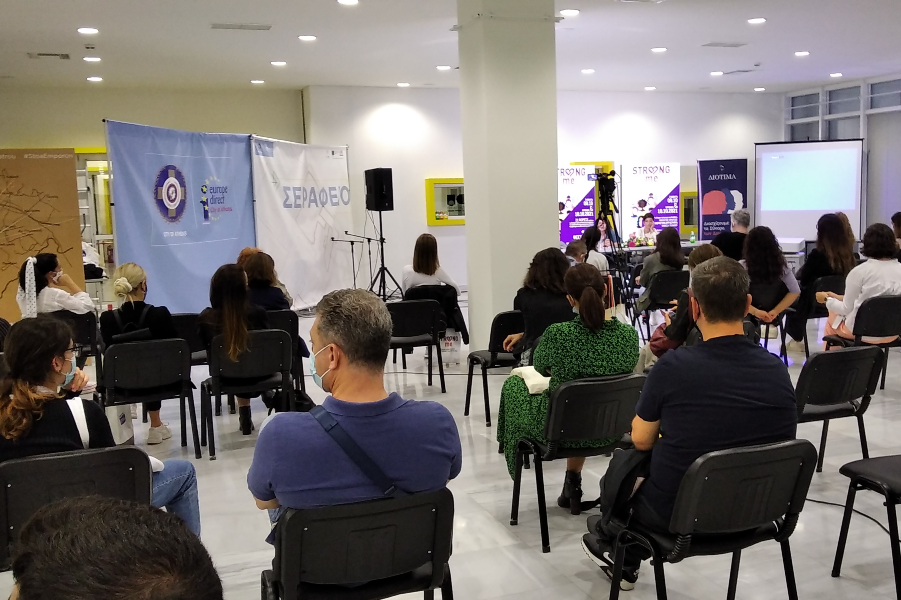The legalization of the term femicide, as well as, the commitment of all of us to zero tolerance of gender-based violence as necessary conditions for the prevention of the most extreme form of gender-based violence, were at the center of the discussion at the event “20 questions and answers about femicide”.
The event was organized by the Diotima Center as part of the two-day Strong Me festival, while the questions addressed by the participants were answered by the Center’s executives, Anna Vougiouka (advocacy manager) and Maria Apostolaki (Legal Services coordinator).
Gender-based murders
On the central question of why we should call them femicides and not “crimes of passion”, as was the case in previous years, the importance of the term in highlighting the real cause of these crimes, namely the fact that they were murdered because they were women, was emphasized.
Anna Vougiouka mentioned the example of the film “Stella” by M. Kakogiannis but also examples from historical events of repression and mass murders of women, such as the workers in Mexico as an “answer” to the assertion of their rights. Maria Apostolaki spoke about femicides in the context of a marital or partner relationship when e.g. a woman decides to divorce. In these cases, women were punished because they wanted to make their own decisions about their lives and bodies.
In addition, it was emphasized that LGBTQI+ people are also “punished” when they do not conform to the normalized patriarchal social norm.
Feminization of care
Another example of femicide reported was the murder of an elderly woman in Argolis, suffering from Alzheimer’s disease, by her husband. Although many disputed that this was femicide, participants highlighted the gendered dimensions of the crime, in the context of a society of gender inequality and violence where masculinities have a say in the life and death of women, while the feminization of care is fully normalized, as it is considered the duty of women exclusively to support children, the disabled, and the sick.
Legal recognition
In response to the audience’s question regarding the legal recognition of the term, M. Apostolaki stated that the Diotima Center and feminist and women’s organizations are asking for the legal recognition of the term and pointed out that it should be a separate offence. In Europe, only in two countries, France and Belgium, has the term been recognized, while only in the countries of Latin America has it been included in their criminal code, either by naming the offense or as a separate category.
It wasn’t a “bad time”
It was also emphasized that femicides are not a momentary event but the culmination of continuous gender-based violence that often escalates.
A participant in the event expressed her concern about the response of the authorities. In fact, reference was also made to the case of Eleni Topaloudis, who had submitted reports to the police but was not protected. The question was raised, whether the newly created Offices for dealing with domestic violence that operate within Police Departments, can also deal with other forms of gender-based violence.
Responding, the rapporteurs emphasized that the prosecuting authorities often ignore, overlook or even, their own members, commit acts of gender-based violence, while secondary victimization is very frequent. For this, it is important that the authorities are held accountable, while we need to demand the implementation of the law.
Undermining gender stereotypes
A participant in the event, expressed his initial reservations about the definition and his gradual conversion, after the public debate developed while underlining that perhaps it should be emphasized that these are victims of toxic masculinity.
In addition, he mentioned the need to educate children from a young age so that they do not reproduce gender stereotypes.





